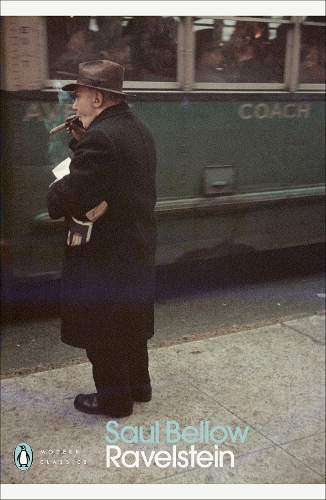
Ravelstein
(Paperback)
Publishing Details
Ravelstein
By (Author) Saul Bellow
Penguin Books Ltd
Penguin Classics
1st February 2023
31st January 2008
United Kingdom
Classifications
General
Fiction
813.52
Physical Properties
Paperback
192
Width 129mm, Height 198mm, Spine 11mm
145g
Description
New to PMC Abe Ravelstein is a brilliant professor at a prominent midwestern university and a man who glories in training the movers and shakers of the political world. He has lived grandly and ferociously-and much beyond his means. His close friend Chick has suggested that he put forth a book of his convictions about the ideas which sustain humankind, or kill it, and much to Ravelstein's own surprise, he does and becomes a millionaire. Ravelstein suggests in turn that Chick write a memoir or a life of him, and during the course of a celebratory trip to Paris the two share thoughts on mortality, philosophy and history, loves and friends, old and new, and vaudeville routines from the remote past. The mood turns more somber once they have returned to the Midwest and Ravelstein succumbs to AIDS and Chick himself nearly dies.
Author Bio
Saul Bellow was born in 1915 to Russian emigre parents. As a young child in Chicago, Bellow was raised on books - the Old Testament, Shakespeare, Tolstoy and Chekhov - and learned Hebrew and Yiddish. He set his heart on becoming a writer after reading Uncle Tom's Cabin, contrary to his mother's hopes that he would become a rabbi or a concert violinist. He was educated at the University of Chicago and North-Western University, graduating in Anthropology and Sociology; he then went on to work for the Encyclopaedia Britannica. Bellow published his first novel, The Dangling Man, in 1944; this was followed, in 1947, by The Victim. In 1948 a Guggenheim Fellowship enabled Bellow to travel to Paris, where he wrote The Adventures of Augie March, published in 1953. Henderson The Rain King (1959) brought Bellow worldwide fame, and in 1964, his best-known novel, Herzog, was published and immediately lauded as a masterpiece, 'a well-nigh faultless novel' (New Yorker). Saul Bellow's dazzling career as a novelist was celebrated during his lifetime with an unprecedented array of literary prizes and awards, including the Pulitzer Prize, three National Book Awards, and the Gold Medal for the Novel. In 1976 he was awarded a Nobel Prize 'for the human understanding and subtle analysis of contemporary culture that are combined in his work'. Bellow's death in 2005 was met with tribute from writers and critics around the world, including James Wood, who praised 'the beauty of this writing, its music, its high lyricism, its firm but luxurious pleasure in language itself'.
